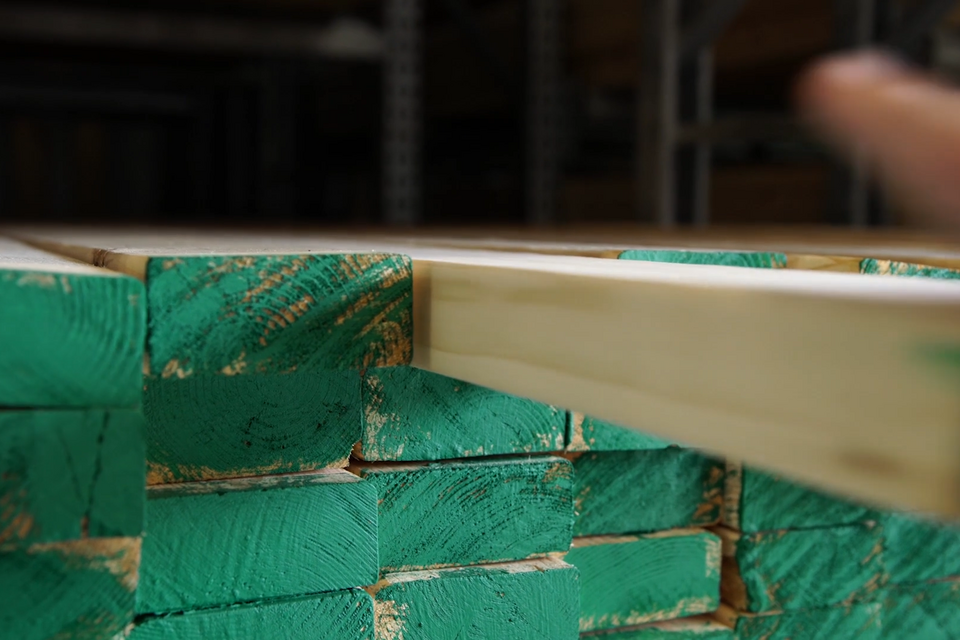Sales were relatively strong in November, but not enough to allow the market to continue its surge. After nine consecutive weeks of an upward trajectory, the market finally faltered and stalled as foul weather, labor, trucking, and material shortages had their effect on forward progress. The reprieve was a welcome one to buyers, who were glad to see price increases abate and the supply line loosen up. However, just when things settle down there always seems to be a fly that gets in the ointment and today we are contending with two: an update to the Softwood Lumber Duty against Canadian lumber mills and a temporary moratorium on the logging of 6.42 million acres of old growth forest in British Columbia. The Softwood Lumber Agreement Duty (“SLA”) has a long history between the United States and Canada and is, at its simplest, a penalty against Canadian lumber mills who are accused of unfairly selling their lumber against their American competitors. Softwood lumber disputes between our countries date back to 1982, but the SLA has been around since 2006 and has gone through periods of activity, expirations and moratoriums. After an expiration in 2015 (with a moratorium on any legal action through 2016), it was re-imposed by the USDOC (United States Department of Commerce) in December 2017 as a two-part duty consisting of the Countervailing Duty (“CVD”, assessed at 14.19%) and Anti-Dumping Duty (“AD”, assessed at 6.04%), for a collective percentage of 20.23%. The duties are meant to penalize Canadian producers for “injuries” incurred by the U.S. Lumber industry by Canadian lumber imports: the CVD is a tariff that offsets subsidies given to these lumber mills by the Canadian government while the AD is a penalty against the mills for shipping and selling lumber (that is not in big demand in Canada) at low prices in the U.S. market. In the end, the injuries to the U.S. Lumber industry is the inability to effectively compete against the Canadian suppliers. With the bureaucracy and disputes that has always surrounded the SLA, so has many changes, with the last having been just a year ago on December 1st of 2020, in which a determination by NAFTA (North Atlantic Free Trade Agreement) that the USDOC had used “flawed calculations” in assessing their damages forced a reduction in duties from 20.23% to 8.99%, an 11.24% drop. A reassessment was announced in May of this year that essentially reversed the ruling and so, as of December 1st, 2021, the duties will go from 8.99% to 18.32%, a 9.33% increase. It’s a crazy situation, but one that has good intentions in protecting American lumber mills. However, here on the ground level, we know that we rely upon the resource of Canadian lumber and that the mills will simply add the duties to their prices which, in turn, inflates the market so one really doesn’t have to think too hard as to who is actually getting penalized here, as it’s obvious: the consumers.
On November 2nd, an announcement of a two-year logging moratorium on 6.42 million acres of British Columbia old growth, unprotected forests had the industry reeling. Although this had been brewing for some time, the action is being taken as a noble means to preserve at-risk forests, but the consequences on an economic scale could be profound. Current predictions of the detrimental impact to the lumber industry and local population are that it “would result in the closure of between 14 and 20 sawmills in B.C., along with two pulp mills and an undetermined number of value-added manufacturing facilities”, representing “approximately 18,000 good, family-supporting jobs lost, along with $400 million in lost revenues to the government each year” per Susan Yurkovich, President of COFI (Council of Forest Industries), (citing Nelson Bennett (BIV Business Intelligence for B.C., November 2, 2021)). Obviously, this situation is a very sensitive due to the potential financial devastation to families and the far-reaching impact in terms of future lumber supply, but we hope that the right decisions are made that will somehow allow balance on both sides of the issue. We’ll keep you apprised of updates to the Softwood Lumber Duty and British Columbia forestry moratorium as they develop, but it appears to be a clear set-up for more supply issues and subsequent price hikes. In the meantime, the market is moving sideways as buyers bolster inventories ahead of the duties and in light of upcoming holiday interruptions. For December, we anticipate that the adjusted SLA duties will be reflected in prices and that they will likely modestly climb throughout the month as, with the New Year, annual mill shut downs typically tighten supply and bump up prices.
With the challenges that we’ve had since the start of the COVID19 pandemic, perhaps the news above about the new duty percentage and forestry closures don’t quite have the impact that they may have had before we lived through the severe shortages, price hikes, unprecedented demand and global economic, social and political changes we’ve experienced since March 2020. Prior to that, certainly we all felt that we had more control of our situations and outcomes but, if there is anything that this pandemic has taught us, is that we can only control so much. It’s been a challenging year and predictions for 2022 are indicating that there will not likely be many improvements but, nonetheless, we are learning every day to cope and improve upon our methods of dealing with these challenges. With that in mind, we here at Shepley are tremendously grateful to all of our customers, new and old, for the support you have given us in 2021 and we look forward to servicing your needs for 2022. We thank you for your business, wish you and your loved ones all the best in health and happiness throughout this season and look forward to growing our relationship with you in the New Year.
